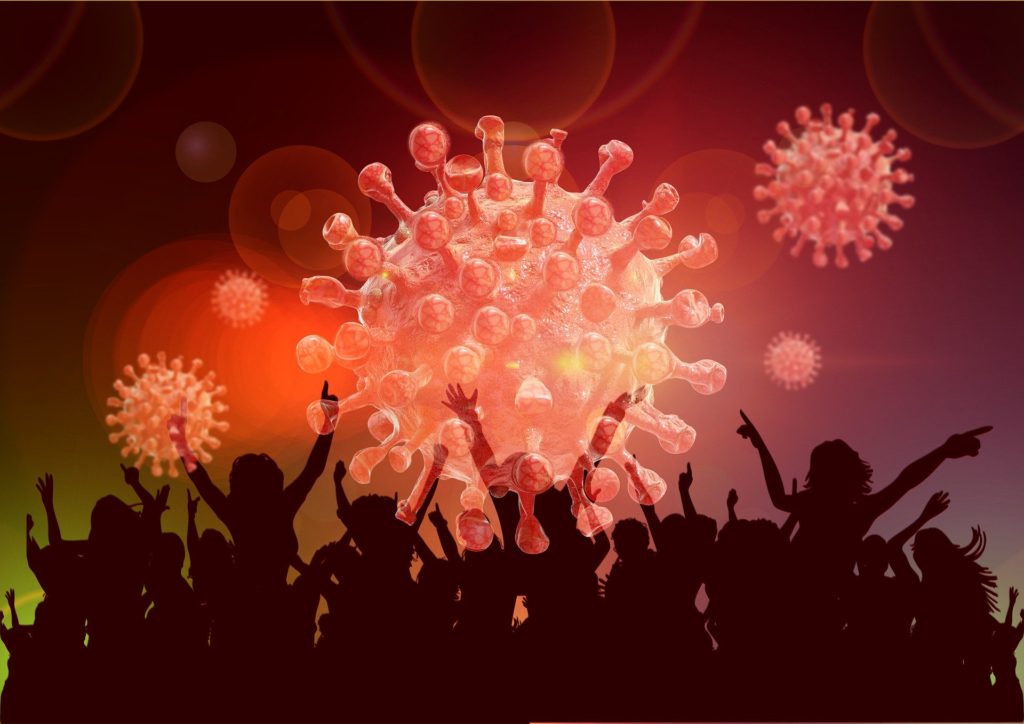
The headlines today include several about busy public areas at a time when officials are asking people to limit their contact with others. Just one example is the busy National Tidal Basin for the Cherry Blossom celebration. While this is a beautiful American tradition, it seems like it would be best to avoid it this year, especially in a city where Coronavirus is clearly spreading in the community. From this to crowded beaches and packed malls and stores, many people are not heeding the warnings from officials.
A variety of reasons for this have been suggested, among them that younger people do not feel like they are at a significant risk for serious illness due to Coronavirus and are therefore not changing their decisions and behaviors at all. It makes sense that people will feel stir-crazy and miss their time with people. Even just feeling rebellious makes sense to a certain extent. Maybe there is no way to effectively communicate the reasons that people should limit their activity, but slowing the spread of this virus depends on people understanding and acting accordingly. So, I am starting today with reasons that even younger people should consider using caution.
Q: Are younger people at risk for serious illness or death due to COVID-19?
A: The CDC publishes a report called Morbidity and Mortality Weekly Report (MMWR) that details instances of illness and death and the causes in the United States. A report about severe outcomes of Coronavirus infection was issued on March 18, 2020. The early information for infections in the United States indicates that the risk for severe illness and death does increase with age. Most hospitalizations and deaths have been in people who are 55 years old and over. However, 20% of those sick enough to need hospitalization were adults age 20 – 44 and another 18% were 45 – 54. While younger people are at a smaller risk of death, they can still become very ill, and any long term effects of COVID-19 are not understood. Reports indicate that the virus damages lung and sinus tissue and can result in loss of smell and/or taste. There is no understanding about how long these effects may last after recovery. The bottom line is that young adults can definitely become seriously ill as a result of Coronavirus.
Q: What does flattening the curve mean, and why does it matter?
A: Very simply, flattening the curve just means that we can take steps to slow down how fast Coronavirus spreads through the population and reduce the number of people who are severely ill at once. There are several great thorough explanations if you are interested, but the concept is very basic. If many people require hospitalization at the same time, supplies and medical attention will be in short supply. People will not get the care they need to recover, and some who would not have died if given proper care would die needlessly. The extra time would also allow for the medical and scientific community to find effective vaccinations and treatments, further reducing the fatality rate.
Q: What can people do to minimize the impact of Coronavirus?
A: Individually, you can limit your potential exposure by avoiding public places, especially crowded ones, and through hand washing and cleaning surfaces. This also limits the possibility that you could infect someone else if you become infected.
China has been rather successful at stopping the spread of Coronavirus by shutting down workplaces, schools, etc. That will be key to slowing down the spread in the United States and other countries as well.
Q: How long is the incubation period, and why is it important?
A: The incubation period is the time between when a person is exposed to Coronavirus and when that person starts to have symptoms. Based on current data, the average incubation period is 5 – 6 days, but incubation can be as much as 14 days. This is important because it is not unusual for a person with a respiratory infection to be contagious before they realize they are sick. Most people with the flu are contagious for about 24 hours before they start to have aches or a fever. We do not know if or how long Coronavirus patients are contagious before showing symptoms, but a long incubation period means people could be spreading virus long before they know they are infected.
Q: How long does Coronavirus live outside of the body?
A: This has not yet been fully determined, along with a number of other important facts about this Coronavirus. We also don’t know how many viruses you have to be exposed to in order for an infection to develop. Estimates are being made based on early testing and what we know about other Coronaviruses. Of course, the answers to these questions can be different in different environments: hot vs. cold or humid vs. dry to name just a couple of examples.
Based on early testing reports, this one could remain infectious on surfaces for up to several days. So, avoid touching objects as much as possible, and try to stop touching your face. Wash your hands thoroughly with soap and warm water. If soap and water are not available, CDC recommends hand sanitizer that is at least 60% alcohol.
Respiratory droplets containing coronavirus can remain suspended in the air or settle on surfaces. The current recommendation is to stay at least 6 feet away from any person spewing infectious waste and be careful not to touch things near them or that they have touched.
Q: Will Coronavirus go away when the weather warms up?
A: We know that flu season ends when temperatures and particularly humidity increase in the spring, but we do not know if the same will be true for Coronavirus. Looking at maps showing locations where the Coronavirus is thriving, it would seem that this virus is not really impacted by climate. In addition, not all strains of a virus are equal. The Spanish flu did not respond to seasonal temperature and humidity variation the way flu viruses usually do. So, we really can not determine yet if this Coronavirus is seasonal. I hope it is.
I’ll be keeping an eye out for more questions, but I plan to write next about parenting in a world where schools are closed and we have to adapt to being a parent with less personal time. As before, if you have other questions or concerns about Coronavirus and the best way to prepare, I always recommend trusting the experts. The WHO and CDC websites dealing with Coronavirus are:
WHO: https://www.who.int/emergencies/diseases/novel-coronavirus-2019


Recent Comments